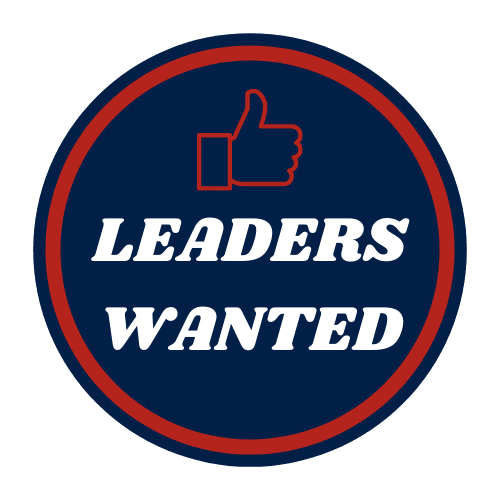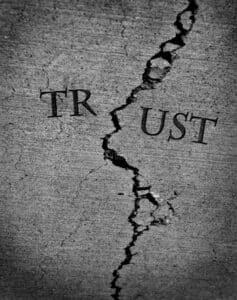
Citizens are losing faith in U.S. institutions to address their concerns. The results of the Gallup 2022 poll surveying participants on their confidence in institutions throughout society show that small businesses, with 68% of respondents expressing “a great deal” or “quite a lot” of confidence in them, and the military, with 64%, are the only institutions winning over the majority of citizens. There is little confidence in the three branches of the federal government. Congress has 7%, the presidency dropped to 23%, and the Supreme Court barely wins with 25%.
Progressive Democrats enter the new Congress dominating the Executive and Legislative Branches as well as a myriad of federal agencies, with Republicans having a slight advantage in the House of Representatives. Americans disdain members of both parties because the Democrats focus on expanding their power while ignoring our problems: a) Americans thought their country has the rule of law; unequal application of laws is not the rule of law b) Faith in the FBI has also evaporated even further after the Twitter Files were made public. c) With unequal justice of the DOJ, and courts legislating from the bench, trust in the judicial system has died d) While we expect the CDC to commit to hard science, facts, and the truth, without regard to politics, it has not done so.
No wonder we have lost trust. 
What is causing this lack of faith in our institutions? My opinion is that the cause is a lack of leadership at all levels. The Democratic party, long held as the party of the working class has become the party of the rich and educated.
The Republican party has not done much better. Please do not tell me that Donald Trump has shown leadership. He has shown to be a nihilistic public person who rose to President and did not respect the office. He had some good policies and has been tremendously harassed, but he has also demonstrated little leadership (bullying is not leadership.)
What motivates the people at the top of our institutions? Power. Recent news demonstrates how politicians crave power and will promise anything that would assure their position.
I believe that our present political leaders are some of the worst in our entire history. That goes for both sides of the aisle. It even extends globally. Worldwide, we have very poor leaders running the Treasuries of the nations. There is a huge vacuum of wise, godly, principled people.
But I believe the gravest leadership crisis or vacuum we face comes from the realm that is meant to be the “light of the world” – the Church. A recent study revealed that almost 50% of the diocesan priests in the U.S. are experiencing burnout mostly linked to the “low level of trust between a priest and his bishop.” Only 24% of U.S. priests express confidence in the leadership of the “U.S. Bishops in general.”
Where are the spiritual leaders who are championing the spiritual harvest, making disciples of all nations, and reforming nations through the power of the Gospel? If the spiritual leaders don’t point the way, then all other spheres of leadership will, of necessity, become corrupt.
The leadership vacuum extends to universities, corporations, and non-profit organizations. The lack of trust in our institutions and the lack of leadership is approaching a mix in the country that can lead to tremendous disruption. History gives us a glimpse of what is possible.
When Lenin organized the Russian revolution he developed his theory of change, a theory of social disruption, of imposing a shift so radical that a society could not go back to the way it had been. Such disruptions don’t just happen randomly. There is a set of conditions required to launch them, and there are particular circumstances in which the initiators of the disruption tend to succeed in their aims.
The core characteristics of this kind of disruption are:
- It stems from a loss of faith in a society’s central institutions – we have this already
- It establishes a set of ideas from what was once the fringe of the intellectual world, placing them at the center of a revamped political order – you see Transgenderism, Critical Race Theory, Diversity, Equity, and Inclusion, taking hold of many of our institutions already – and
- It involves a coherent group committed to the change – the Democratic Party, the Administrative State, Tech Companies, and Media are that group.
 This Ideological change is crucial for major societal change to occur because societies promote ideologies that support their way of doing business – and if the way of viewing the world doesn’t change, the way of doing business isn’t going to change either.
This Ideological change is crucial for major societal change to occur because societies promote ideologies that support their way of doing business – and if the way of viewing the world doesn’t change, the way of doing business isn’t going to change either.
The key to reversing this disruption is to restore faith in our institutions. The underlying principle of liberal democracy is the contract between the government and the governed. I remember the 1970’s when Carter was President; the same lack of leadership we see today was present then, and the disruptions began to creep up. The country was going through an energy crisis, record-breaking inflation, and an embarrassing event in Iran. Then Ronald Reagan became president and through his leadership and contagious enthusiasm changed the mood of the country. A divided country united behind him and his optimism for the country. At the same time, we also had Pope John Paul II leading the Catholic Church and inspiring young people to enthusiastically embrace the faith.
I do not see a Ronald Reagan or a John Paul II rising to restore that faith in leadership – we desperately need one. But I do have faith that someone will rise. Msgr. Duncan, my former pastor at Our Lady of Mount Carmel, told me once that during the “fat” times, no leader rises, but during the “lean” times – when most needed – leaders rise again.
Will that happen now? We desperately need one. But we citizens can do our part, too:
- Resurrect dialogue by listening to your opponents. Require evidence, not just feelings.
- Do not get pulled into an echo chamber where you only listen to news that agrees with you. The public needs a reliable source of unadjusted facts, someone to question everything said or done by politicians and bureaucrats, without regard for party affiliation or expressed ideology. Demand it.
- Vote, and not just for incumbents; many run for office to do well for themselves, not the country. Vote them out.
- Resist tyranny. Do not simply go along with every mandate. Form your own opinion by staying informed.
- Demand that education replace indoctrination. We, citizens, have been asleep too long; let’s wake up.
- Be a good role model for the young. It is with our actions we will influence them the most.
Citizens acting this way will uncover the leadership that will get us out of the muck we are in.
